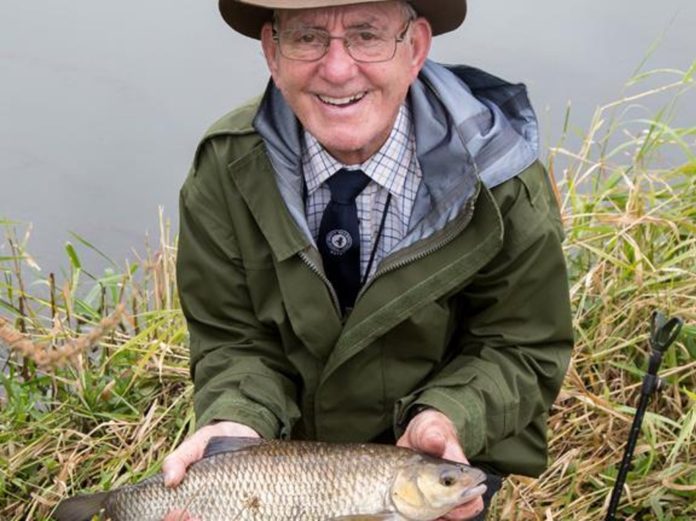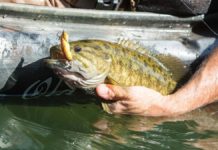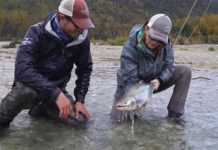
One of the problems with the former is that when it is really cold, the lake you are fishing may not be very productive. Summer fish like tench have long since departed for a period of quiet contemplation deep in the silt.
Our normally willing carp often sits listless in the water, trying to find that water layer that is marginally warmer than the rest of the lake.
Our angler often replicates these actions. Motionless they sit wrapped up in multiple layers, feet ensconced in thermal socks and boots and mugs of hot tea at the ready. They show either a stoic level of dedication or are frankly just crazy.
The smart angler realises that to enjoy his sport in this type of weather the tactic is to keep on the move, walking a few miles of river bank, spending no more than 30 minutes in any one spot and keeping the blood flowing to the extremities.
Many will use lures for pike and perch, both great ways to keep moving but most will set out to catch one of the winters most willing fish – the chub.
The chub (squalius cephalus) is a member of the carp family and shares many of the same qualities. It fights hard and will live in any type of water, but its endearing trait is that it will eat virtually anything. Once captured you will notice the huge mouth that seems out of all proportion to its size.
It’s a mouth that says don’t be stingy with the bait – give me a proper meal.
Active all year, the chub doesn’t grow as massive as its cousin the carp, the British record is just over 9lb but its willingness to feed in all weathers highlights its appeal.
In summer it will happily eat anything that comes its way, including to the annoyance of the club’s barbel anglers, the eggs of spawning fish. It seems to know exactly when the barbel spawn and simply books in to enjoy a nutritious free meal.
As a tiddler (chublet) it often shares the water with another all-weather fish, the dace.
In fact, they are remarkably similar when small, so much so that an angler is often confused as to whether they have caught a nice small chub or an enormous dace.
Many a member of the British Record Fish Committee has spent time dashing the hopes of the excited angler who believes the dace record is theirs.
So how to catch those big specimens? As already mentioned, every method will catch, float fished maggots, worms or casters all work but often get destroyed by small fish especially minnows and gudgeon. More successful is the use of legered baits like luncheon meats, pellets or boilies.
But there is one winter bait that rules supreme and the good news is that it costs virtually nothing, bread.
A while back I was privileged to watch a master in action. Martin James is a terrific angler, broadcaster and writer.
Now in his 80s he has fished all over the world for every type of fish be it wild salmon and tarpon in the Americas to sitting side by side with the legendary Richard Walker at hat mecca of carp waters, Redmire Pool.
But when pressed to name his favourite form of fishing he never hesitates: “Small river chub fishing every time.”
This, from a man who once spent a week in the Caribbean teaching a Miss World contestant to fly fish, is saying something.
On the day he quickly caught four or five good sized chub and his technique couldn’t be simpler.
Threading 6lb line through his 1950’s split cane rod (if it works why change seems to be his motto),attaching a whopping size four hook, tearing off half a slice of a Kingsmill loaf and moulding it around the hook, he casts to midwater and let the current swing the bait under a likely looking spot, normally an overhanding tree or a build-up of flotsam.
For weights he simply pinches on a couple of swan shot four inches from the hook. Placing the rod in a rest he watches the tip and waits. It normally doesn’t take long.
A chub take is not subtle, that huge mouth grabs the bait and not wanting to share the fish bolts off at speed, often hooking itself in the process. The fight is not long but quite ferocious but with Martin on the other end the fish had no chance.
If you want to fish in winter and don’t fancy hypothermia, then the secret is keep moving and never linger for more than 20-30 minutes in one swim.
Walk a few miles up-river, fishing all the likely spots, and scattering a couple of handfuls of mashed up bread, then walk back down revisiting the same swims and repeat the tactic. With luck that greedy Chavender will arrive and get your blood pumping.
Petworth & Bognor Angling Club
Credit: Source link































